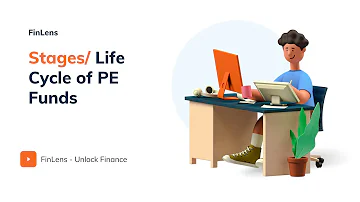
What is stage in private equity?
Stages of Private Equity Investment They are as follows: Seed stage investment: Under the seed stage, the investment is made for the sake of a business idea. Generally, the investment is made for market research and development. Early-stage investment: It’s the second stage of investment.
What are the five main stages of equity financing?
Here are the five main stages of equity capital:
- Stage #1: Pre-Seed Funding. …
- Stage #2: Seed Funding. …
- Stage #3: Early Stage Investment (Series A & B) …
- Stage #4: Later Stage Investment (Series C, D, etc.) …
- Stage #5: Mezzanine Financing.
What are the stages of equity financing?
While there is no hard and fast rule that a company has to proceed with their financing in a particular sequence, typically the rounds of equity financing can be viewed as follows: seed/angel round, series A, series B, series C (followed by D, E, etc. as needed), and an exit.
What is the life cycle of a private equity fund?
According to Blackstone’s Private Wealth Solutions group, the life cycle of PE funds is typically 7 to 10 years, and is generally broken down into three stages: the fundraising period, the investment period, and the harvest period. Fundraising Period: The first few years is spent raising capital to create the fund.
What is seed VS Series A?
The difference between a Seed Round and Series A It primarily lies in the stage in which a company finds itself when seeking fundraising. As such, a seed round comes before a finished product. Meanwhile, Series A happens when there’s a product and with clear evidence of traction.
What is the mezzanine stage?
Mezzanine financing is a hybrid of debt and equity financing that gives the lender the right to convert to an equity interest in the company in case of default, generally, after venture capital companies and other senior lenders are paid.
What is private equity do?
Private equity is an alternative form of private financing, away from public markets, in which funds and investors directly invest in companies or engage in buyouts of such companies. Private equity firms make money by charging management and performance fees from investors in a fund.
What is a private equity round?
Private Equity: A private equity round is led by a private equity firm or a hedge fund and is a late stage round. It is a less risky investment because the company is more firmly established, and the rounds are typically upwards of $50M.
What is first close in private equity?
“final close.” First close basically means that when a certain threshold of money has been raised, the PE firm can begin making investments and actually closing deals and new LPs can still join in by committing capital for a limited time (e.g., 1 year from first close).
What happens at the end of a private equity fund?
At the end of the life of a fund, remaining investments are liquidated. Proceeds are distributed. Limited extensions to fund term possible – usually 2 years at the discretion of the GP and then longer if a majority of investors wish it.
Should you sell to private equity?
- Selling to a private equity group (PEG) may be a great exit strategy for an owner who wants or needs to get substantial liquidity out of the business but wants to remain in operational control. Typically, PEGs will look to buy 80 percent of your firm’s equity; the rest stays with you.
How to start a private equity company?
- Get the required training and experience
- Conduct your feasibility studies and market survey
- Choose a name and register the business
- Draft a detailed Business Plan and market strategy
- Secure the needed licenses and permits
- Apply for an EIN (Employer Identification Number)/Federal Tax ID Number.
- Hire a lawyer
- Raise money
- Invest money
- Open a corporate bank account
- Lease or rent and equip an office facility
- Hire employees
- Promote and Market your business
How to invest in private equity?
- Minimum Investment Requirement. Private equity investing is not easily accessible for the average investor. …
- Fund of Funds. …
- Private Equity ETF. …
- Special Purpose Acquisition Companies (SPAC) You can also invest in publicly traded shell companies that make private–equity investments in undervalued private companies,but they can be risky.
- The Bottom Line. …
What is private equity and how does it work?
- Private equity funds are set up as a limited partnership by a private equity firm. The firm then reaches out to large investors like university endowments, union pension plans, charities, insurance companies, and extremely wealthy individuals to raise capital.
